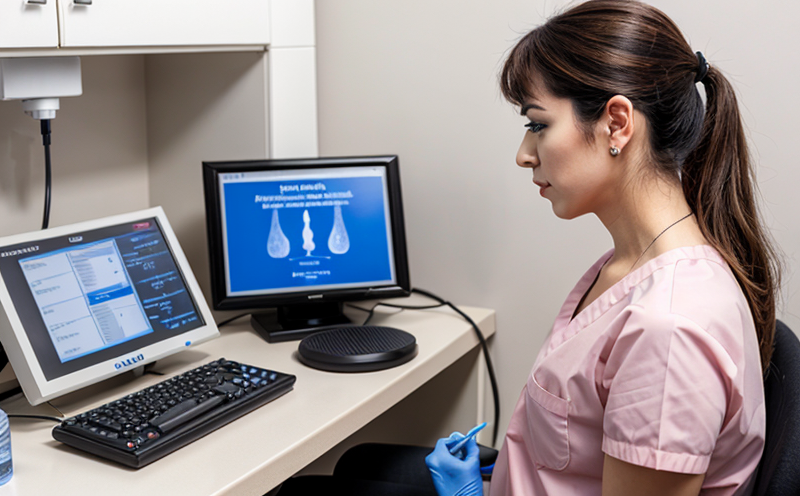Endocrine Function Testing in Aquaculture Species
The field of aquaculture has seen exponential growth over recent decades as a sustainable alternative to wild fish harvesting. Endocrine function testing plays a crucial role in ensuring the health and productivity of aquaculture species, which are often exposed to various environmental stressors and management practices that can influence their endocrine systems.
Endocrine disruption is a growing concern in aquatic environments due to the presence of synthetic chemicals, pollutants, and other stress factors. These disruptions can have long-lasting effects on fish reproduction, growth, and overall health. By conducting comprehensive endocrine function testing, aquaculture operators can monitor these impacts and implement targeted interventions.
Our laboratory specializes in providing accurate and reliable testing services for aquatic species, focusing specifically on the evaluation of endocrine function. We utilize state-of-the-art equipment and follow stringent protocols to ensure precision and consistency in our results. Our tests are designed to identify potential disruptions early, allowing for proactive management strategies that enhance fish welfare and environmental sustainability.
The scope of our testing includes a wide range of parameters such as thyroid hormones (T3, T4), sex steroids (estrogens, androgens), growth hormones (GHs), and other critical indicators. These tests are essential for understanding the physiological status of aquatic species under different conditions, including stocking density, water quality variations, and exposure to xenobiotics.
Our laboratory adheres to international standards such as ISO 17025:2017, ensuring that our testing methods meet the highest quality assurance requirements. Additionally, we follow specific protocols for specimen preparation, which include precise handling techniques to minimize stress and ensure accurate results. Our team of experienced scientists ensures that all tests are conducted under controlled conditions to maintain consistency.
The importance of endocrine function testing in aquaculture cannot be overstated. By identifying disruptions early on, aquaculture operators can take necessary steps to mitigate the risks associated with these disruptions. This proactive approach not only enhances fish health but also contributes to the overall sustainability of aquatic ecosystems. Our laboratory is committed to providing accurate and reliable test results that are essential for making informed decisions in this critical field.
Our services extend beyond just testing; we offer comprehensive support to our clients, including interpretation of test results and recommendations for management strategies. We work closely with industry professionals to ensure that our findings contribute to the ongoing improvement of aquaculture practices.
Applied Standards
The endocrine function testing in aquatic species follows a set of internationally recognized standards to ensure accuracy, precision, and reliability. The primary standard we follow is ISO 17025:2017, which outlines the general requirements for the competence of testing laboratories.
- ISO 17025:2017 – General Requirements for the Competence of Testing and Calibration Laboratories
Additionally, we adhere to specific guidelines provided by organizations such as the World Organization for Animal Health (OIE) and the United States Food and Drug Administration (FDA). These guidelines provide additional context on how our testing methods are applied in real-world scenarios.
Our laboratory is dedicated to maintaining compliance with these standards. By doing so, we ensure that all tests conducted meet the highest quality assurance requirements, providing clients with reliable data they can trust.
Scope and Methodology
The scope of our endocrine function testing in aquaculture species encompasses a variety of parameters critical to understanding the health and welfare of aquatic organisms. We test for thyroid hormones (T3, T4), sex steroids such as estrogens and androgens, growth hormones (GHs), and other important indicators that play key roles in fish reproduction, metabolism, and overall health.
The methodology involves several steps to ensure accurate and reliable results. Specimen collection is critical; we employ trained personnel who follow strict protocols for sample handling to minimize stress and prevent contamination. Samples are then processed using advanced laboratory techniques, including chromatography and mass spectrometry, to quantify hormone levels with precision.
Data analysis is conducted by our team of experienced scientists, who use statistical software to interpret results and identify trends or anomalies. This process allows us to provide detailed reports that not only quantify hormone levels but also offer insights into the physiological state of the fish population being tested.
We work closely with clients throughout the testing process, from initial consultation to final report delivery. Our goal is to ensure that all aspects of endocrine function testing are conducted in a manner that meets or exceeds industry standards.
Quality and Reliability Assurance
- ISO 17025:2017
- Certified Calibration Laboratory – Ensuring accuracy of all test instruments
- Standard Operating Procedures (SOPs) – Detailed protocols for specimen handling and analysis
- Digital Data Management – Secure storage and retrieval of test results
- Internal Quality Control – Regular calibration and validation of test methods
- External Audits – Periodic assessments by independent bodies to ensure compliance with standards
The reliability of our testing services is underpinned by a robust quality management system that adheres to international best practices. Our laboratory is certified in accordance with ISO 17025:2017, which sets the benchmark for competence and proficiency in testing laboratories.
We maintain a certified calibration laboratory that ensures all instruments used are accurate and reliable. Detailed standard operating procedures (SOPs) guide every step of specimen handling and analysis to minimize variability and ensure consistent results.
Digital data management systems provide secure storage and retrieval of test results, ensuring transparency and traceability throughout the testing process. Regular internal quality control measures involve calibration and validation of test methods to maintain precision and accuracy.
Periodic external audits by independent bodies further reinforce our commitment to maintaining high standards of reliability and accuracy in all tests conducted. This comprehensive approach ensures that clients receive trustworthy and reliable data they can confidently use for decision-making purposes.





